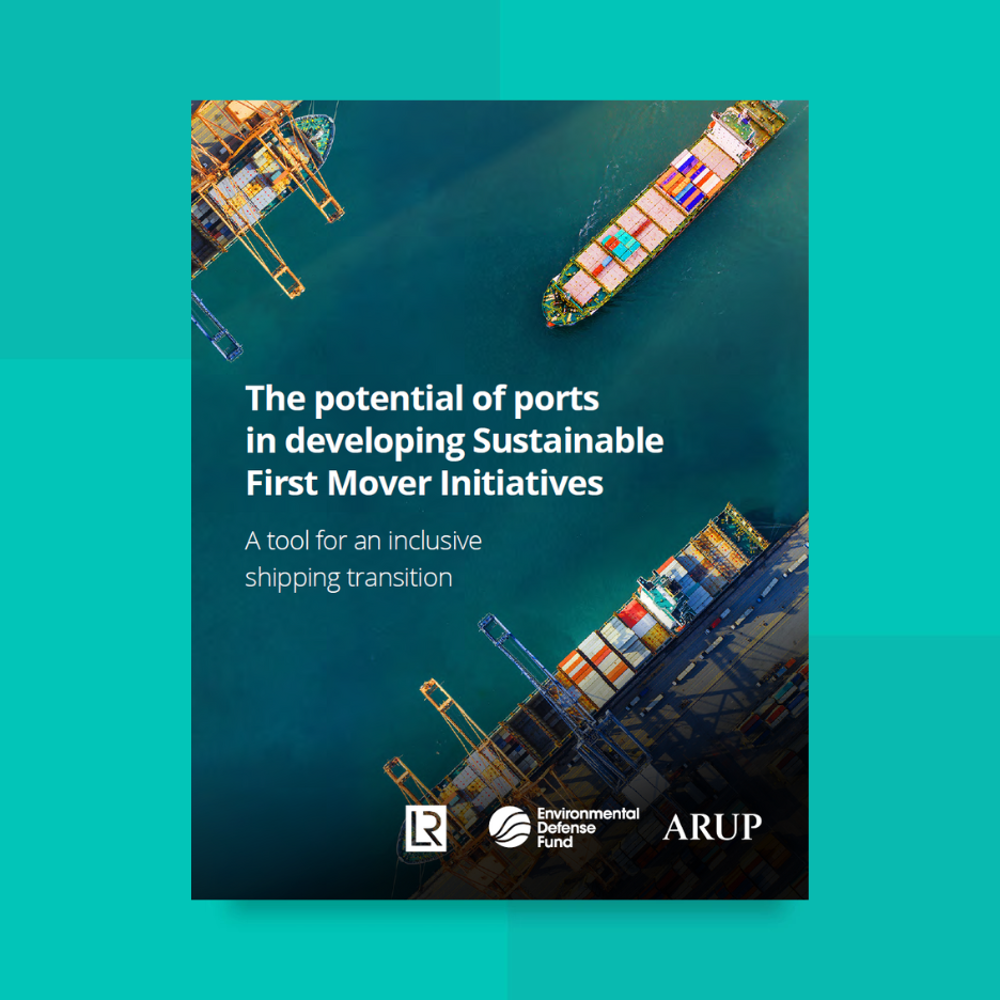What are Sustainable First Mover Initiatives?
Sustainable First Mover Initiatives (SFMIs) are port-led strategies that accelerate shipping’s transition to zero-emission fuels. Developed by EDF, the Decarb Hub, and Arup, the SFMI Identification Tool helps ports measure their readiness to produce or bunker electrofuels. The tool evaluates emissions reduction potential, community benefits, land use, and renewable energy access, aligning development with the Paris 1.5 °C climate goal.
Why this tool matters
Ports are uniquely positioned to drive decarbonisation. By acting as early movers, they can deliver co-benefits such as cleaner air, stronger economies, and healthier communities. With nearly two billion people living near coasts, the tool ensures that climate and economic benefits are inclusive, especially in the Global South where capacity-building is most needed.
How the tool works
The tool analysed 108 ports in the Indo-Pacific region through a multicriteria framework that looked at renewable energy potential, shipping activity, land availability, air quality improvements, and local economic impact. It grouped ports into three categories: production with bunkering, exports, and imports with bunkering. Initial results identified JNPT in India and Chittagong in Bangladesh as standout candidates.
A second phase will refine the tool by working with stakeholders in 10 priority ports, tailoring it to local needs and testing pilot projects. This approach aims to turn analysis into practical action for decarbonisation.
Ports, energy developers, fuel producers, investors, and policymakers can use this tool to guide high-impact, inclusive decarbonisation investments.
Frequently Asked Questions
It is a decision-support tool developed by EDF, the Decarb Hub, and Arup. The tool helps ports evaluate their readiness to produce or bunker electrofuels, scoring them against criteria such as emissions reduction, renewable energy access, land suitability, and community benefits.
Unlike traditional infrastructure studies, this tool combines climate impact, energy potential, and social benefits to provide a holistic view of where ports can lead the decarbonisation effort.
The study focused on the Indo-Pacific, using a multicriteria analysis of 108 ports to identify those with the greatest potential to support sustainable fuel transitions.
Electrofuels include hydrogen, ammonia, and methanol produced using renewable electricity. These fuels can replace fossil fuels in shipping while cutting lifecycle emissions.


